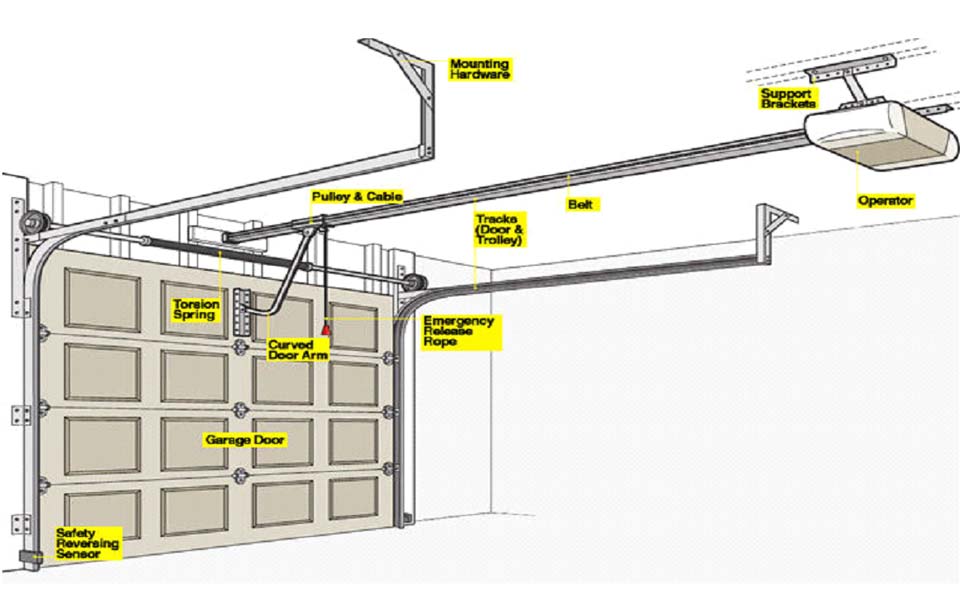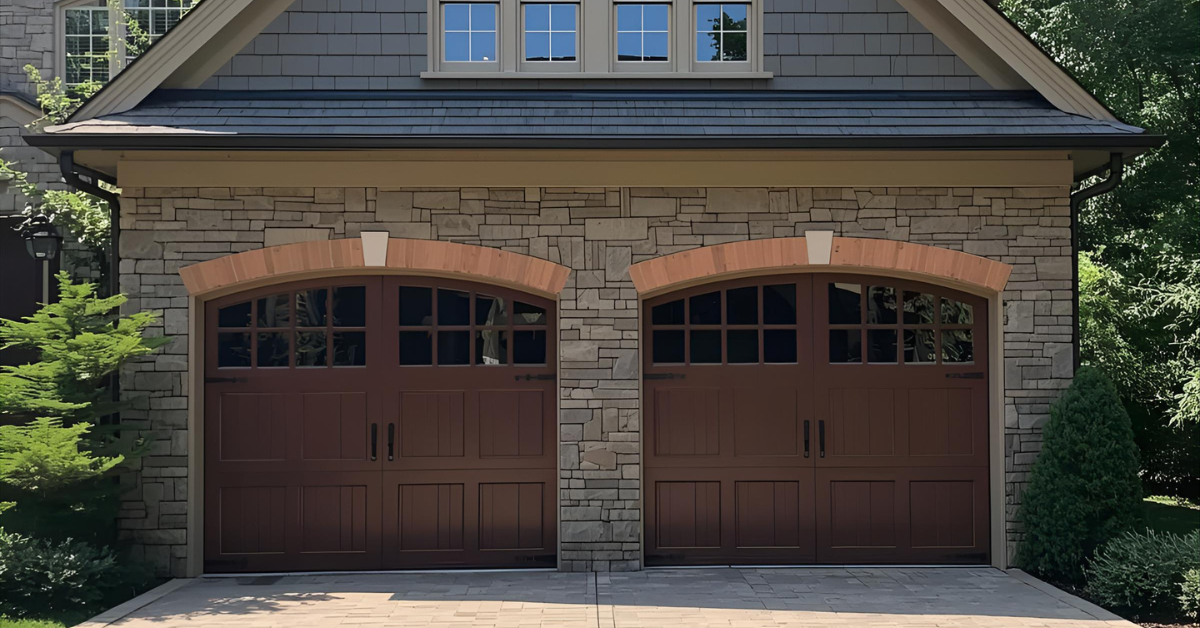How Does a Garage Door Spring Work?
How Does a Garage Door Spring Work?

What are the different types of garage door springs, and how do they work
One of the most important parts of your garage door is the garage door spring. It is in charge of supporting the whole weight of your garage door. Your garage doors would be too heavy, if not impossible, to lift without it, even though your openers could start automatic operations without it. It is therefore better to hire a professional instead of risking injury by repairing a garage door spring.
The torsion spring and the extension spring are the two types of garage door springs.
Why do garage doors have springs?
Your garage door has springs, whichever kind they are, to lift and lower your door. The springs tighten up as the garage door is lowered. When the garage door is raised, the spring helps lift it because the tension has been removed.
How do garage door springs work?
By applying torque to coils of heavy-gauge steel wire, torsion garage door springs balance the weight of garage doors. Garage doors can weigh anywhere between 250 and 600 pounds, depending on their size and style. Typically, torsion springs are mounted horizontally on torsion bars near to the garage opening, above the garage door.
The weight of your garage door is distributed evenly throughout the system by the torsion springs, resulting in a more stable functioning. This takes into account the garage door's modest trembling, which indicates instability every time it is opened. Torsion springs are more robust and last longer than extension springs.
Some garage doors have more than one torsion spring. The number depends mainly on the weight it carries and the number of doors you have. The more doors you possess, the more springs you need to maintain stability on your garage doors.
How Extension Springs Work
An older sort of spring system is one that uses extension springs. It is often present on both sides of the garage doors and is cable-attached at one end to the track support. Although they are effective at helping your door move against gravity, they do not have the same impact on your garage door's balance as torsion springs do.
Your garage door weighs a ton, therefore it is amazing that it can be so simply raised and lowered on the ground when it is opened or closed. The real lifting is done by the coils of your garage door spring, even though your garage door opener is in charge of your automatic functioning.
Torsion Springs vs. Extension Springs
Although they serve the same purpose, torsion and extension springs operate in distinct ways. When you open a door with a torsion spring, the springs unwind as the door raises. By rotating the shaft that turns the cable drums, the strain that has been stored lifts actual objects. The cables untie from the drums and the springs are wound back up to their full tension as the door is lowered to close.
Through a system of pulleys and counterweight cables that extend from the bottom corner brackets through the pulleys, extension springs lift your garage door. Your extension springs tighten when your garage door is opened, elevating the door when the strain is released.
No matter what type of garage door springs you have, it is essential always to have them in perfect condition, as it is critical to the smooth function of your garage doors. If you detect anything suspicious regarding how they move or sound, call Fix N Go Service immediately to check for problems. This will prevent avoidable accidents from occurring.
Fix N Go Service takes care of your garage door springs
Like any device used regularly, your garage door springs eventually suffer from wear and tear. This is why it is a must that it is inspected regularly and be subjected to regular maintenance. Garage door springs hold a tremendous amount of tension that, when released, may cause accidents or injuries.
Fix N Go Service provides this type of garage door care for you as well as their own trademarked springs, Midlife torsion springs. They conduct regular garage door inspections, tune-ups, and maintenance services that prevent you from any inconvenience caused by the sudden breaking of your springs. They also ensure they last as long as possible, saving you money from constant repairs such as garage door spring repair and replacement.
Fix N Go Service has been known to provide only the best service for your garage doors. For over a decade, they have proven themselves as the top garage door service provider in town, gaining thousands of satisfied customers. They have a team of experts ready to respond to your garage door concerns anytime with just one call.
Fix N Go Service also understands the need for security and an immediate game plan. This is why they provide 1-day garage door installation for those who need it, preventing your homes from unnecessary exposure for longer periods. They are also ready with the vast collection of garage door parts that have to make repairs any time of the day.




